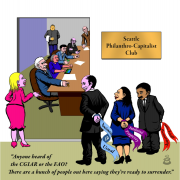Related Content
86% of the world's biomass is located in the global South.
Submitted by ETC Staff on
While from space the planet may look green and rich with biomass, the dirty little secret of the biomass economy is that – just like fossilized carbon reserves (oil, coal, natural gas) – the living carbon reserves are not equally distributed. Worldwide, land-based vegetation stores an estimated 500 billion tonnes of carbon. However 86% of that (430 billion tonnes) is stored in the tropics and sub-tropics, while boreal and temperate eco-regions store only 34 billion tonnes and 33 billion tonnes, respectively.
Subscribe
A temporary form for collecting email addresses until we hook the real system in.
ETC Group opposes intellectual property rights that undermine control of communities over their own culture and resources and strengthen corporate power.
ETC Group opposes market monopoly in sectors impacting biodiversity, health and livelihoods in the global South.
The world's largest chemical, energy, agribusiness and pharma companies are investing in Synthetic Biology
Submitted by ETC Staff on
Corporations investing in Synthetic Biology include 6 of the top 10 Chemical Companies, 6 of the top 10 Energy companies, 6 of the top 10 grain traders and the top 7 pharma companies.
Geoengineering
Submitted by ETC Staff on
Although Rio+20 negotiators are discussing marine applications of geoengineering (so-called “ocean fertilization”) in the context of climate change and technological “quick fixes,” the wider issues of geoengineering, including so-called solar radiation management, are not being discussed. The UN Convention on Biological Diversity established a de facto moratorium on all forms of geoengineering in 2010. Nevertheless, some governments are continuing to look toward technological methods of blocking or reflecting sunlight and other planetary system adjustments. Rio+20 should make a firm statement banning geoengineering to prevent a handful of countries -- a new “coalition of the willing” from taking the Earth’s thermostat into their own hands.
Help ETC
ETC Group is a small organisation with limited resources and plenty to do. We depend a lot on our collaborations with other groups and individuals and are extremely grateful for offers of support, advice and skilled help. If you would also like to support us in our work, please don't be shy to offer! There are many ways to contribute to ETC Group. Here are just a few...
Offer your expertise
As a small non-profit organisation, ETC Group relies heavily on advice, knowledge and in-kind support offered by friends and allies, including scientists, technology experts, policy experts, farmers, agronomists, lawyers, academics as well as journalists, graphic artists, translators, editors and more. In the course of our research and advocacy our programme staff often need to reach out to experts for scientific and technical advice, and we are always extremely grateful for the time and attention.
Pathways To Disruption
Submitted by ETC Group on
Due to problems with scale-up, some synthetic biology companies are shifting focus away from biofuels to high-value / low-volume products – especially compounds found in plants (e.g., essential oils, flavours, fragrances, colourants and pharmaceuticals) – which are traditionally cultivated by farming communities in the global South.
If commercially viable, synthetic biology’s patented organisms have the potential to de-stabilize natural product markets, disrupt trade and eliminate jobs.with far-reaching impacts on agricultural economies.
Endorse the Campaign to Ban Terminator
Submitted by ETC Staff on
We invite all civil society organizations and social movements - organizations, communities, and gatherings of Indigenous peoples, farmers, peasants, churches, and all others - to endorse the campaign by signing on to the following statement. (Your group’s name will be used in a list of groups that state opposition to Terminator)
Sign the letter.
Ban Terminator
Purpose: The Ban Terminator Campaign seeks to promote government bans on Terminator technology at the national and international levels, and supports the efforts of civil society, farmers, Indigenous peoples and social movements to campaign against it.
Captain Hook Awards for Biopiracy
Biopiracy refers to the monopolization (usually through intellectual property) of genetic resources and traditional knowledge or culture taken from peoples or farming communities that developed and nurtured those resources.
The Captain Hook Awards are a project of the Coalition Against Biopiracy, an informal group of civil society and peoples' organizations that first came together at the 1995 Conference of the Parties to the Convention on Biological Diversity meeting in Jakarta.
Support 'The Principles for the Oversight of Synthetic Biology'
Submitted by ETC Staff on
The Principles for the Oversight of Synthetic Biology is the first global declaration from civil society to outline principles that must be adopted to protect public health and our environment from the risks posed by synthetic biology. The report also addresses the field’s numerous economic, social and ethical challenges. The writing of these principles was a collaborative effort and has been endorsed by 111 organizations from around the world.
Search for content
Our faceted search engine allows you to add/remove filters and keywords to drill down to the content you need. If this is a search that will be useful to you in future, you can bookmark the URL or subscribe to a search-specific RSS feed.
Our funders: Who do we get funds from?
New Report: The Greed Revolution
Submitted by ETC Staff on
A new 30-page report that documents the growing influence of agribusiness on the multilateral food system and the lack of transparency in research funding has been released today by the international civil society organization ETC Group. The Greed Revolution: Mega Foundations, Agribusiness Muscle In On Public Goods, presents three case studies – one involving the UN Food and Agriculture Organization (FAO) and two involving CGIAR Centers (Consultative Group on International Agricultural Research) -- which point to a dangerous trend that will worsen rather than solve the problem of global hunger. The report details, amongst others, the involvement of Nestlé, Heineken, Monsanto, the Bill & Melinda Gates Foundation and Syngenta Foundation.






